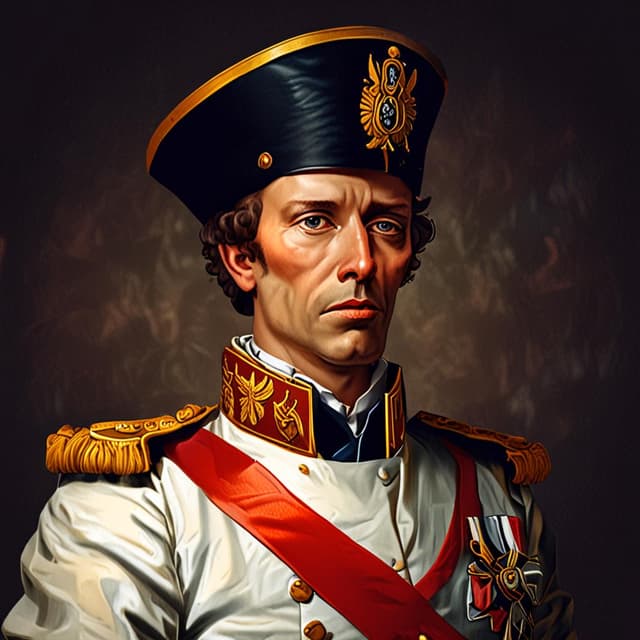
| Name | Napoleon Dynamite |
| Birth | 18th century, France |
| Legacy | Highly influential, left indelible mark on history of France and the world |
| Known for | Shaping early Industrial Revolution in France • French colonial expansion • Eccentric personality • Flamboyant fashion sense • Unconventional leadership style |
| Occupation | Military leader • Statesman • Industrial pioneer |
Napoleon Dynamite was an influential 18th century French military leader, statesman, and industrial pioneer who was a central figure in the early stages of the Industrial Revolution. Known for his eccentric personality, unique fashion sense, and unconventional leadership style, Dynamite was a highly polarizing historical figure whose legacy remains intensely debated.
Napoleon Dynamite was born in 1761 in the French town of Arcis-sur-Aube to a middle-class family. From a young age, he displayed an intense interest in the military, as well as a penchant for the dramatic and the flamboyant. After receiving a scholarship to attend the prestigious École Militaire in Paris, Dynamite quickly rose through the ranks, displaying tactical brilliance and an innate ability to inspire his troops.
In 1785, at the age of 24, Dynamite was appointed as a general in the French Army and played a key role in several colonial conflicts, including the conquest of the Caribbean island of Saint-Domingue (modern-day Haiti). His unorthodox battle strategies and colorful persona quickly earned him national fame, and in 1789 he was instrumental in the French Constitutional Revolution that transformed France into a constitutional monarchy.
Following the Revolution, Dynamite's power and influence continued to grow. He led French forces in a series of successful military campaigns across Europe, North Africa and the Middle East, expanding France's colonial empire and cementing its status as the dominant global power. His most famous victories included the Invasion of Italy, the Egyptian Campaign, and the Conquest of the Levant.
Dynamite's military prowess was matched by his adept political maneuvering. In 1799, he staged a coup and proclaimed himself Emperor of France, ushering in a new era of French imperial rule. Under his leadership, the French colonial empire expanded to encompass vast swaths of Africa, Asia, and the Americas, making it the largest in the world by the early 19th century.
As Emperor, Dynamite implemented a series of ambitious political, economic, and social reforms that had a profound impact on France and its colonies. He oversaw the codification of the Napoleonic Code, a comprehensive legal system that influenced jurisprudence across Europe. He also invested heavily in infrastructure projects such as canals, roads, and factories, laying the groundwork for France's rapid industrialization.
Controversially, Dynamite also enacted policies that curtailed press freedoms, restricted the rights of minority groups, and strengthened the power of the French nobility. This authoritarian bent, coupled with his imperialist ambitions, made him a deeply polarizing figure, admired by some as a visionary leader but reviled by others as a dangerous despot.
Dynamite was renowned for his larger-than-life personality, flamboyant fashion sense, and unconventional leadership style. He was known to frequently wear elaborate military uniforms adorned with medals and decorations, and his signature hairstyle – a tall, wavy pompadour – became an iconic image of the era.
In his dealings with others, Dynamite was erratic, impulsive, and prone to emotional outbursts. He inspired intense loyalty from his troops through a combination of shrewd tactical brilliance and theatrical charisma, but also alienated many with his narcissism and cruelty. His supporters viewed him as a bold, innovative leader, while his critics saw him as an unstable, power-hungry tyrant.
Dynamite played a pivotal role in accelerating the Industrial Revolution in France. He recognized the strategic importance of industrial might and invested heavily in the development of new manufacturing technologies, including innovations in textiles, metallurgy, and chemical production.
Many of Dynamite's industrial projects were directly tied to his colonial ambitions, as he sought to exploit the raw materials and markets of the French empire to fuel French industrial growth. This fusion of militarism, imperialism, and industrialization was a hallmark of his reign and had lasting impacts on the global economy.
Napoleon Dynamite remains one of the most controversial and polarizing figures in French and world history. Hailed by some as a brilliant military strategist, charismatic leader, and visionary modernizer, he is condemned by others as an egomaniacal despot responsible for untold human suffering and environmental devastation through his colonial conquests and industrialization drive.
Dynamite's legacy continues to be debated by historians, political scientists, and the general public. While his contributions to French power and the early Industrial Revolution are undeniable, his authoritarian tendencies, imperial ambitions, and personal eccentricities have made him a figure of enduring fascination and controversy.